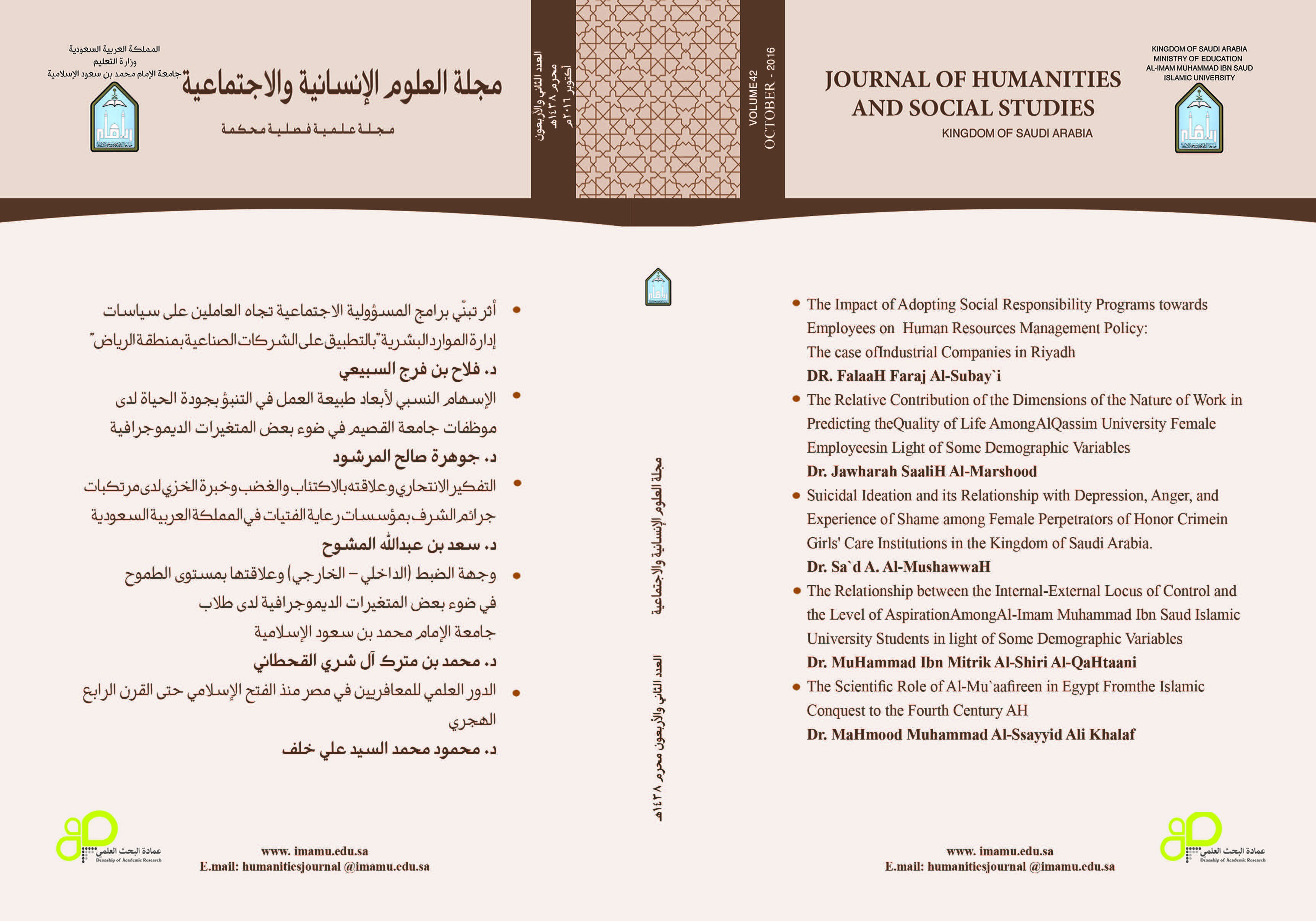Suicidal Ideation and its Relationship with Depression, Anger, and Experience of Shame among Female Perpetrators of Honor Crimein Girls' Care Institutions in the Kingdom of Saudi Arabia.
Keywords:
suicidal ideation, depression, anger, shame experience, female perpetrators of honor crimes, girls' care institutionsAbstract
The current study examines suicidal ideation and its relationship with depression, anger, and experience of shame among female perpetrators of honor crimes, resident in girls' care institutions in the Kingdom of Saudi Arabia. The researcher applies the correlative descriptive method when examining the study variables, using four instruments: the Suicidal Ideation Scale (Rudd, 1989), the Beck Depression Inventory BDI-II (Beck, et al., 1989), The Anger Scale (Faid, 2007), and the Experience of Shame Scale (Faid, 2007). The study population included a group of females in the residence of girls’ care institutions in four regions in the Kingdom of Saudi Arabia (Riyadh, Makkah, Al-Ahsaa, and Abha).The study was applied on a target sample of (268) female perpetrators of honor crimes. The findings of the study suggest a significant positive correlation at level 0,01 between suicidal ideation and depression, anger, andexperience of shame; where the correlation coefficient of suicidal ideation and depression reached (**0.33), of suicidal ideation and anger (**0.37), and of suicidal ideation and experience of shame (**0.27). In addition, the findings of the study sample show a correlation between depression variable and anger (**0.50), and experience of shame (**0.45). Moreover, the findings show that all of the regression coefficients of the three independent variables are of high level of indication. The level of the indication of the regression coefficients for the key variables in the study (depression, anger, and experience of shame) ranges from 0,001 to 0,002, which suggests a high level of significant predictors. Finally, the findings show that the statistical separation of the effect of depression degrees has led to a decline in the value of the correlation between anger and suicidal ideation (from 0,10 to 0,05). This finding indicates that the depression factor plays a role in increasing the level of the relationship between suicidal ideation and anger, which suggests passivism of the depression factor in increasing the level of anger and suicidal ideation among the study sample. The study concludes with a number of recommendations and suggestions for future studies of other variables related tothe study of female population perpetrators of honor crimes in girls' care institutions in the Kingdom of Saudi Arabia.




